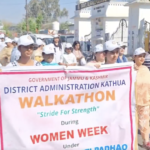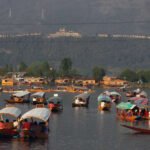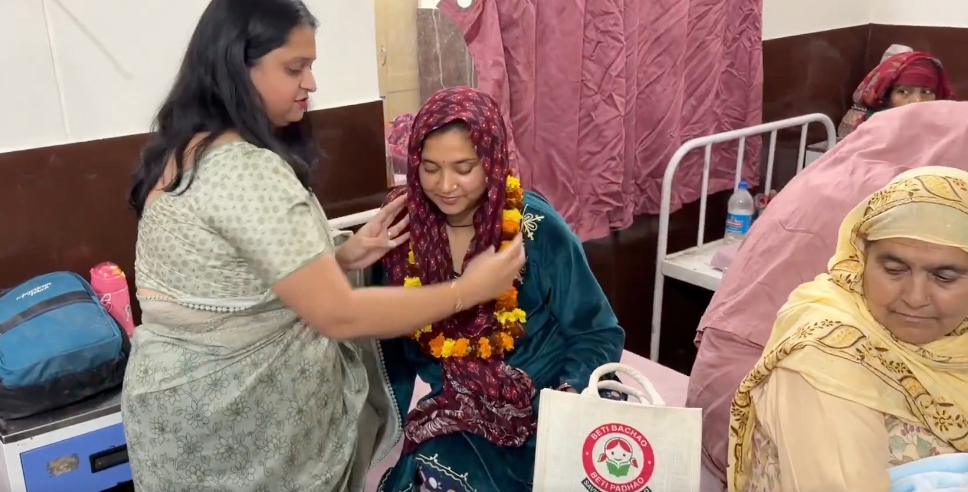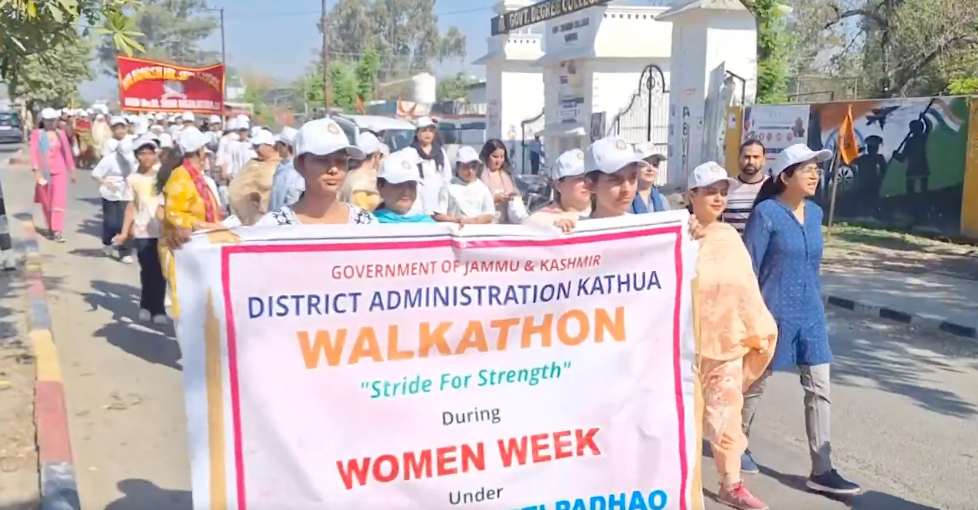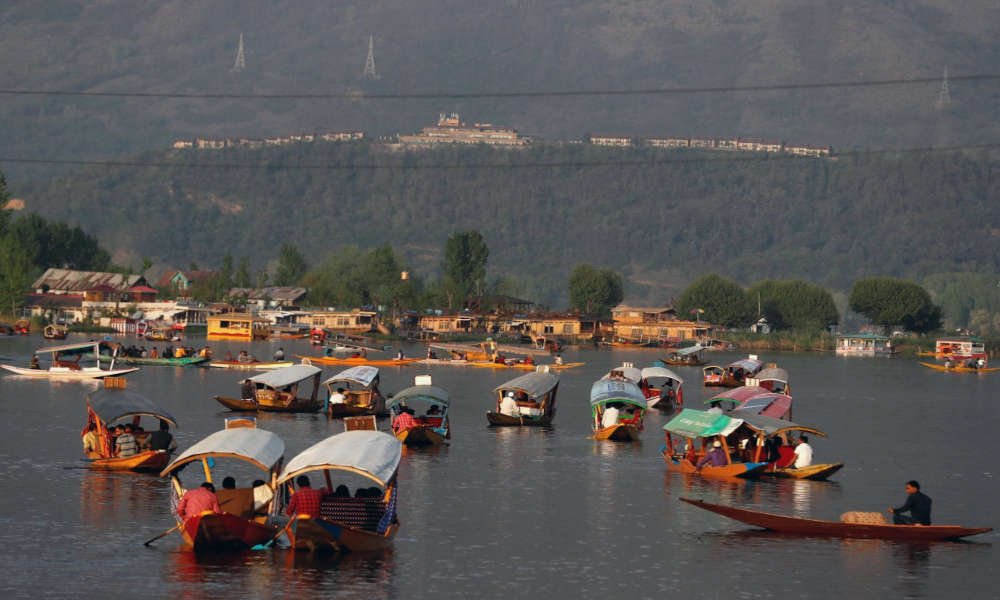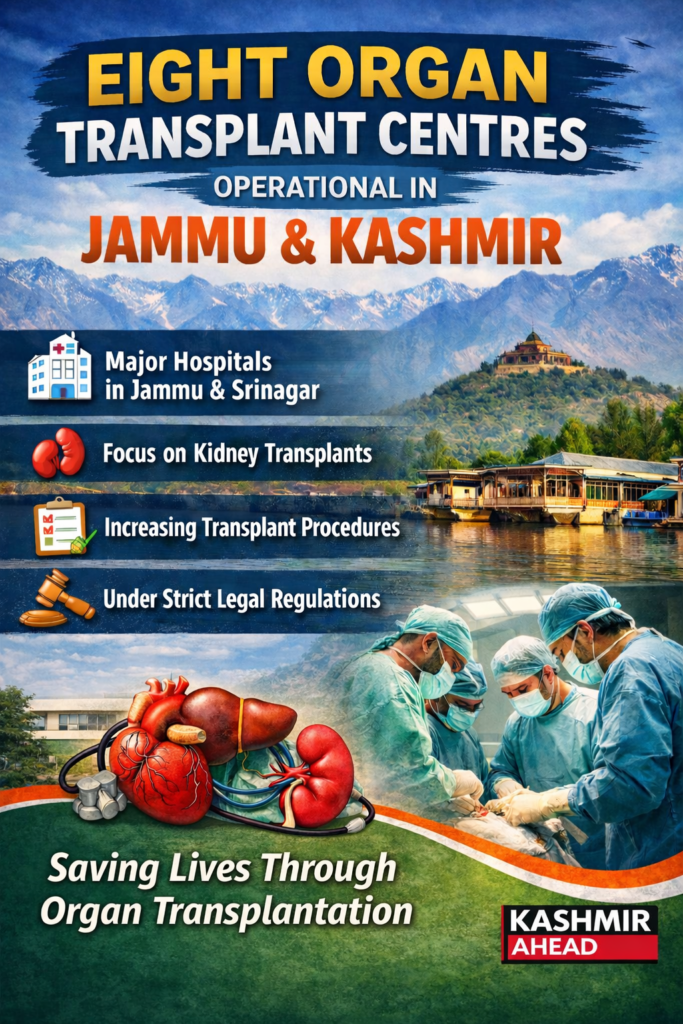Pulwama, June 24, 2025 — In a groundbreaking agricultural feat, Shabir Ahmad, a farmer from Renzipora village in Pulwama, South Kashmir, has transformed two kanals of Karewa highland—traditionally used for almond and saffron cultivation—into a thriving paddy field. By harnessing solar-powered irrigation through a government-subsidised scheme, Ahmad has introduced climate-smart farming to the dry, elevated plateaus, marking a first-of-its-kind initiative in the region. This innovative approach is turning arid landscapes green and offering a sustainable model for Kashmir’s agriculture.
Revolutionising Karewa Land Cultivation
Karewa highlands, lacustrine terraces known for their water-scarce, elevated terrain, have long been reserved for low-water crops like almonds and saffron. However, Shabir Ahmad, a forward-thinking farmer, saw untapped potential in his old almond orchard. Facing the labor-intensive challenges of irrigating traditional paddy fields in the plains, he decided to experiment with paddy cultivation on his Karewa land. “It takes extra labor and effort to manage paddy in stagnated fields,” Ahmad explained. “This led me to explore the possibility of cultivating paddy on Karewa land.”
To overcome the irrigation challenge, Ahmad installed a borewell and a solar-powered pump, supported by a government subsidy scheme from the Jammu and Kashmir Agriculture Department. This climate-smart solution not only provides a reliable water supply to the water-scarce highland but also reduces dependency on fossil fuels, aligning with sustainable farming practices.
A Community in Awe
The transformation has left the local community astonished. Mohammad Amin, a 50-year-old farmer from Renzipora, remarked, “In my entire life, I have never seen paddy grown on Karewa land.” He noted that these terraces have traditionally been dedicated to saffron and almonds due to their dry conditions. Ahmad’s success is inspiring other farmers in Pulwama to reconsider the potential of Karewa highlands for diverse crops, signaling a shift toward innovative and resilient farming practices.
Key Details of the Initiative
| Aspect | Details |
|---|---|
| Farmer | Shabir Ahmad, Renzipora village, Pulwama |
| Location | Karewa highland, Pulwama, Jammu and Kashmir |
| Area Cultivated | Two kanals (0.25 acres) |
| Crop | Paddy (previously almond orchard) |
| Irrigation Method | Solar-powered borewell pump, government-subsidized |
| Significance | First paddy cultivation on Karewa land, promoting climate-smart farming |
| Support | Jammu and Kashmir Agriculture Department |
A Step Toward Climate-Smart Agriculture
Ahmad’s initiative aligns with broader efforts to combat climate change challenges in Kashmir, where farmers are grappling with prolonged dry spells and water scarcity. Recent reports highlight the struggles of paddy farmers in nearby Handwara, who have resorted to manual irrigation with buckets due to a lack of adequate systems. By contrast, Ahmad’s adoption of solar-powered irrigation offers a sustainable solution, reducing carbon emissions and enhancing water efficiency on dry plateaus. This aligns with initiatives like the PM-KUSUM scheme, which promotes solar energy in agriculture across India.
The success of this project is also a testament to Kashmir’s evolving agricultural landscape. As farmers face declining returns from traditional paddy cultivation due to low profits and climate challenges, innovations like Ahmad’s are paving the way for sustainable agriculture. His approach demonstrates how climate-smart farming can transform unproductive land into fertile grounds, offering hope for food security and economic resilience.
Inspiring a Green Future
Ahmad’s pioneering effort has sparked interest across Pulwama and beyond, with social media platforms . One post celebrated, “#Pulwama #farmer harnesses solar energy to pioneer #paddycultivation on Karewa land!” The initiative is a beacon of hope for Kashmir’s farmers, showing that with innovation and support, even the most challenging terrains can be transformed into productive fields.
As Kashmir navigates the impacts of climate change, Shabir Ahmad’s Karewa paddy field stands as a model of resilience and sustainability. By blending traditional farming with modern technology, he is not only redefining land use but also inspiring a new generation of farmers to embrace climate-smart solutions for a greener, more prosperous future.




